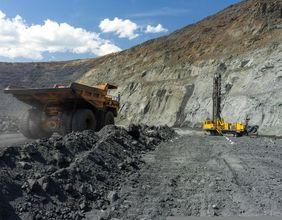In line with the market expectations, the Australian share market?s benchmark index- S&P/ASX 200 rebounded on Thursday (5th December 2019) after observing a steep fall in the last two days of trade, driven by overnight gains on Wall Street.
The index closed the trading session 1.1 per cent or 76.5 points up, at 6683 points. The broader All Ordinaries was also 1.1 per cent up at 6791.1 points. Among industry sectors, the energy sector shares saw a maximum jump of 1.59 per cent to 11,378.1.
Fresh Hopes of U.S.-China Trade Deal Push Wall Street & ASX Higher
Breaking a three-day losing streak, the three major Wall Street?s stock indexes rallied on Wednesday, following a report that China and the US are going well on signing the phase-one trade deal.
The S&P 500 Index, the Dow Jones Industrial Average and Nasdaq Composite index were 0.63 per cent up to 3,112.76, 0.53 per cent up to 27,649.78 and 0.54 per cent up to 8,566.67, respectively on Wednesday.
The Wall Street gains were fuelled by the reports that the two largest economies of the world are moving with full speed to secure a partial trade deal before the scheduled rise of tariffs on Chinese goods on 15th December 2019.
The reports wiped the US stock market losses of Tuesday, that surfaced from the Donald Trump?s comments that China might have to wait till November 2020 for a trade deal. The President mentioned that the trade deal with China is likely to take place after the presidential elections in the US. These statements undermined hopes of a speedy resolution of the dispute, driving stock markets down.
In response to the trade fears emerging from the President?s comments, the Australian share market fell sharply on Wednesday. The S&P/ASX200 index closed the trading session at 6,606.5 points (1.58 per cent down), together with the larger All Ordinaries that was at 6,714.4 points (1.53 per cent down).
Does Wall Street Stock Market Gains Favour a Santa Claus Rally?
Santa Claus rally is a nickname given to the Wall Street for its tendency to rally over the last five trading days of December and early two trading days of January. A number of explanations have been delivered so far for the causes of Santa Claus rally, including:
- Increased buying by investors in expectations of a bullish January.
- An infusion of extra capital into the stock market for tax purposes that needs to be finalised by the end of the year.
- Increased holiday shopping.
- Less liquidity during the end of the year as big institutional investors go on a vacation, enabling smaller retail investors to move the stock market.
Most of the Decembers in the last 40 years have yielded higher returns for shareholders in the stock market, creating a concept of Santa Claus rally.
Some market experts believe that December 2019 could set bigger gains for investors if the scheduled tariff hike on Chinese imports would be avoided. These experts are of the opinion that the beginning of the stock price gains might be a starting of the Santa Claus rally.
It has been witnessed that the stock markets are quickly responding to each new development in the trade talks. Although the market sentiments have improved after positive developments in the US-China trade deal, uncertainty still remains over the potential gains.
In addition to the ongoing advancements in the US-China trade deal, investors are also closely eyeing some other significant developments that are discussed below:
US-Japan Trade Deal Gets Approval from Japan Parliament
Japan?s parliament has finally approved the US-Japan trade deal that was planned by Japanese Prime Minister Shinzo Abe and Mr Trump early in 2019. The deal has smoothened the way for entrance of the US beef and other agricultural goods in the Japanese markets. It is likely to take effect in the beginning of 2020.
The US President was eager to enter into a trade deal with Japan as American farmers were adversely affected by the ongoing trade war with China due to restricted access to the Chinese markets.
The deal will reduce some American tariffs on Japanese industrial products; however, a 2.5 per cent tariff on automobiles of Japan still remains. The US-Japan trade agreement does not address auto trade and the decision on auto tariffs is likely to come up in the later trade talks.
As per leading market experts, the deal is more advantageous for the US than Japan, benefitting US ranchers, farmers and digital services providers. With the approval, the US pork and beef industries are eagerly looking forward to exploring more opportunities in Japan.
Australia?s Retail Sales Stagnated in October, But Broke Records Last Weekend
The recently announced retail sales data for October 2019 by the ABS revealed a stagnation in retail turnover as shoppers stayed at home, closing wallets.
Though October figures were disappointing for the country?s economy, retailers saw a record number of shoppers over the weekend between Black Friday and Cyber Monday.
Most of the biggest retailers, including Kogan.Com Ltd (ASX: KGN), eBay and Amazon, surpassed all records between last Friday & Monday. eBay observed an increase in spending by more than four times the forecast over the four-day shopping spree.
One of the big four banks of Australia, National Australia Bank Limited (ASX: NAB) and National Retail Association expected shoppers to spend about $2.9 billion and $5 billion, respectively over the four days. Though the retail sales broke record numbers, uncertainty stays that whether retail figures have beaten the forecast or not.
Market experts expect a further increase in retail sales in the coming months due to rising property prices in Australia, that might offset slow growth in wages and encourage people to spend more.
RBNZ Raised Capital Requirements for Four Australian Banks
The Reserve Bank of New Zealand (RBNZ) has ordered the four retail banks of Australia - ASB Bank, Australia and New Zealand Banking Group Limited (ASX: ANZ), Westpac Banking Corporation (ASX: WBC) and Bank of New Zealand (BNZ) ? to increase the amount of capital they hold from 10.5 per cent to 18 per cent of their loans.
RBNZ has confirmed that these Australian-owned banks would be designated as important banks holding more capital than their rival small banks. The decision has been taken to make these banks stronger to protect depositors? money and survive any unfortunate financial crisis.
This development led to a jump in shares of big four banks trading on ASX as shown in the below table:
We are dedicated to keeping you informed about any further developments in the global markets. Stay tuned to Kalkine Media for more updates.
Disclaimer
This website is a service of Kalkine Media Pty. Ltd. A.C.N. 629 651 672. The website has been prepared for informational purposes only and is not intended to be used as a complete source of information on any particular company. Kalkine Media does not in any way endorse or recommend individuals, products or services that may be discussed on this site. Our publications are NOT a solicitation or recommendation to buy, sell or hold. We are neither licensed nor qualified to provide investment advice.











